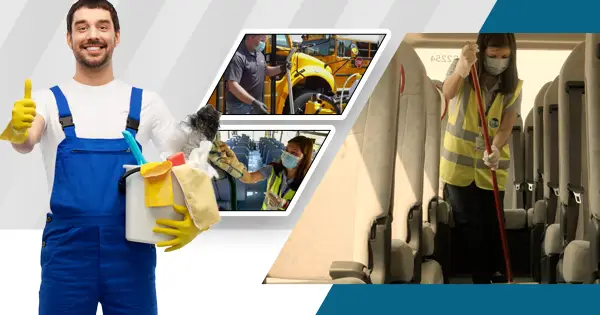School buses play a vital role in ensuring that students travel safely and comfortably every day. However, these vehicles can quickly accumulate dirt, germs, and allergens, which can affect the health and well-being of children. That is why regular cleaning is not enough—comprehensive deep cleaning in the UK is essential to maintain hygiene standards inside school buses.
Why Deep Cleaning Matters for School Buses
Unlike routine cleaning, deep cleaning reaches hidden corners, seats, windows, and ventilation systems. This ensures that bacteria, viruses, and stubborn dirt are completely removed. Students are particularly vulnerable to infections, making it crucial to keep their travel environment hygienic.
Health Benefits of Disinfection
Deep cleaning is effective, but adding an extra layer of protection with disinfection cleaning in the UK ensures that harmful pathogens are eliminated. This reduces the risk of flu, colds, and other illnesses spreading among students, leading to healthier attendance and improved performance at school.
Supporting a Safe Learning Environment
By investing in proper cleaning methods, schools demonstrate a commitment to student health and safety. Parents gain peace of mind knowing that their children travel in a sanitized environment, while schools benefit from fewer absences and a stronger reputation.
Conclusion
Clean buses lead to happy and healthy students. Through deep cleaning and disinfection, schools can ensure that every ride to and from the classroom is safe, hygienic, and stress-free.


